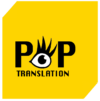Working on urgent translations does not mean compromising on quality. Nowadays, rapid communication needs are forcing translation agencies to offer services to be performed as quickly as possible. However, it is also important that they ensure the quality of the texts they deliver.

-
What is an urgent translation?
The term “urgent” can be interpreted in different ways, depending on an individual’s perspective and personal situation. “Urgent” is understood by some to mean a translation that must be done within an hour, while others must be done within a day or two. It is the number of words and the time limit that determine, among other things, the urgency of a translation. The project manager of the translation company will determine the urgency of a translation order based on these and other variables. This is one of the characteristics of this type of translation that must be taken into account when the demand is made and when the translation quote is ready.
It is important to know that those who provide this urgent translation service should be aware that in many cases they will have to work overtime, outside fixed working hours and during the weekend or leave other work on hold in order to give priority to emergencies. In addition, they must take into account the fact that beyond the need to deliver urgent translation work, it must offer a quality consistent with what the client desires. It will therefore be the responsibility of the company and the translators who make up the team to deliver high-quality translated texts. In this sense, making urgent translations means offering an optimal quality of service as soon as possible.
-
Characteristics of urgent translations
When we talk about urgent translations, we always have the same questions. For example: does an urgent translation cost the same as a non-urgent translation? The professional translator, like any other professional in any other field, has fixed working hours, commitments, work in progress… Therefore, if you have to postpone the delivery of other work or work overtime or outside of your usual hours, it is obvious that the rate for urgent work cannot be equal to the standard work rate. In this case, urgent translations are generally charged at a higher rate than non-urgent translations.
Another question that a client might ask when asking for an urgent translation is the quality of the final text. As indicated above, the speed of a translation must not affect its quality. However, other factors may interfere with production. In principle, the choice of the company and professionals who will be responsible for translation is a key factor in ensuring the quality of urgent translations. In this case, when it comes to this type of work, it is advisable to choose an established translation agency or a professional translator. Not all translators do urgent translations (or not all do them well).
Another factor to consider is the complexity of the task. For example, the translation of a website does not have the same level of complexity as the translation of a clinical trial or a technical manual for a vacuum cleaner. The degree of specialization of the text to be translated is undoubtedly another key factor when it comes to making an urgent translation and estimating its price and delivery time.
As already mentioned, it is quite obvious that the length of a document also affects the time taken to translate it.
Finally, it is important that the client informs the agency or the professional translator of the actual urgency of the assignment. It will always be preferable to set the actual deadline for urgent translations, and therefore to give the professional the possibility to work with complete peace of mind.
In general, translation agencies provide personalized quotes and inform you of the exact delivery date along with the quote.
-
Examples of urgent translations



